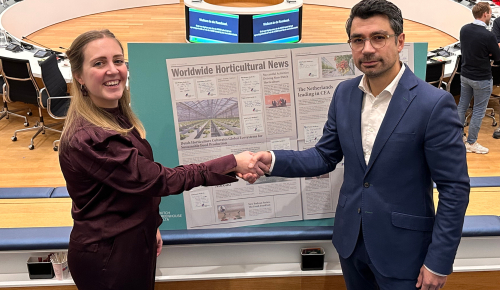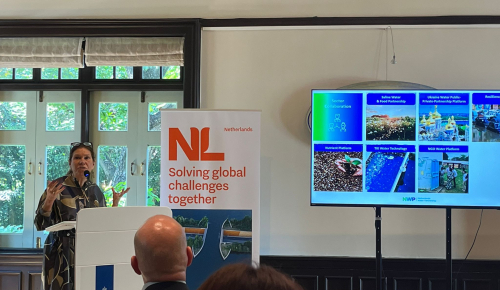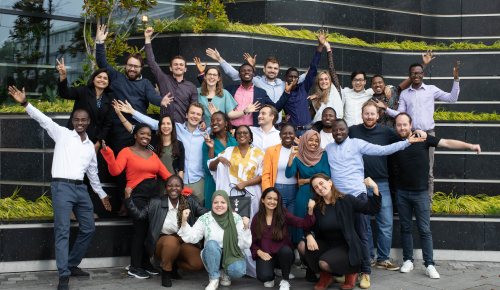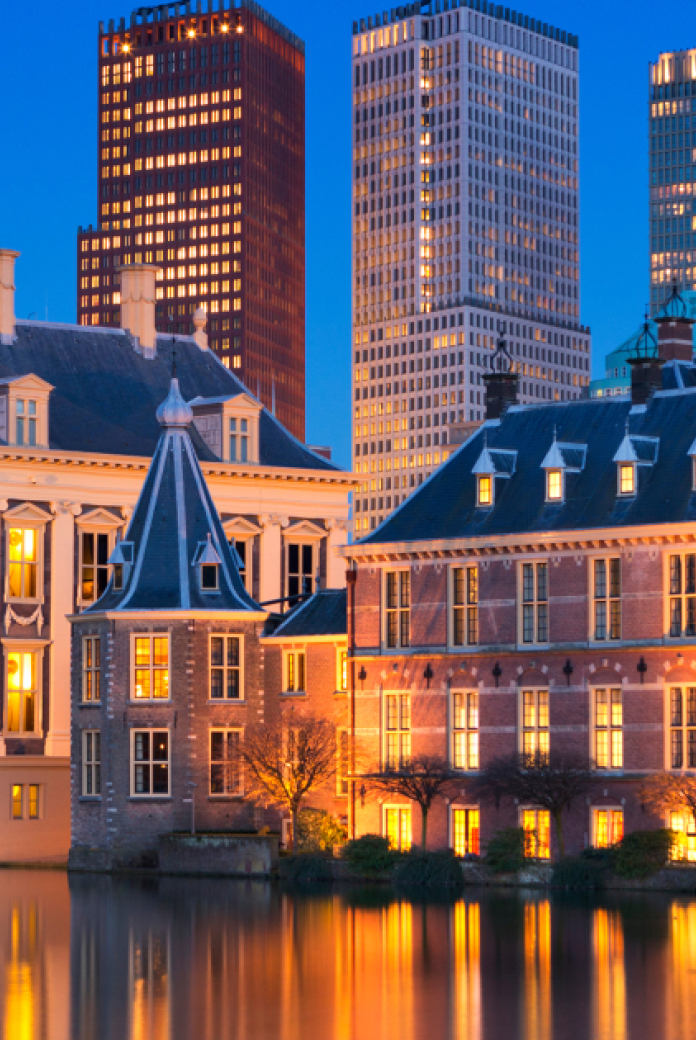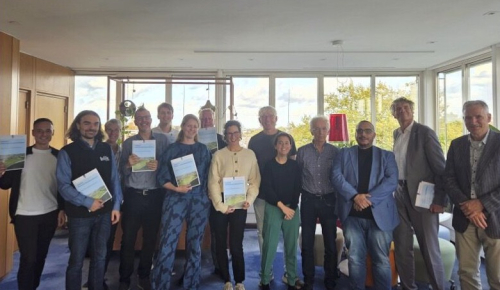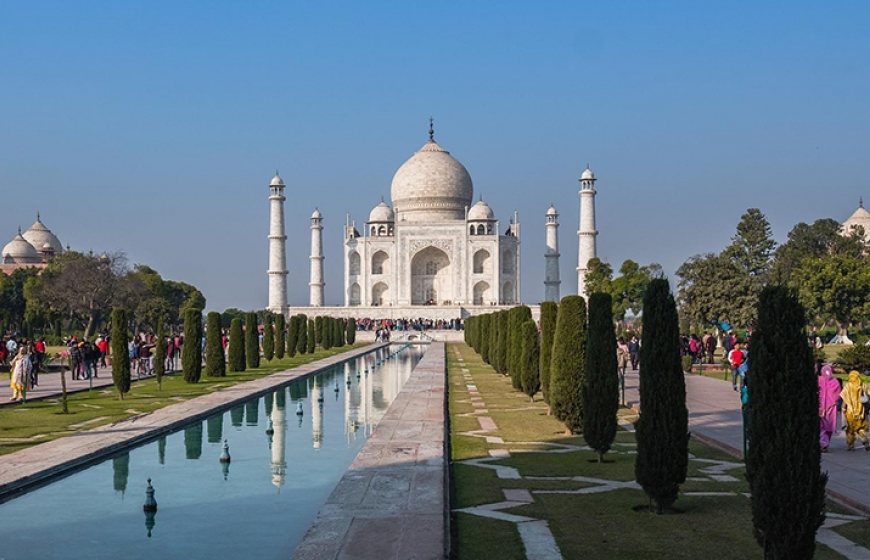
Doing business in India can be challenging. Its economy is fast-paced and its population geographically and culturally diverse. It is also a country that is grappling with the effects of climate change, resulting in water shortages, floods and drought. It is predicted that by 2030, the demand for water in India will be double the supply, a situation that is fast becoming a reality as shifts in rainfall and consumption patterns impact the country’s water quality and availability.
The Netherlands Water Partnership (NWP) is helping to find solutions to this by coordinating the Water Track as part of the Dutch Government’s virtual mission to India. The mission is being organised by the Dutch Ministry of Foreign Affairs and the Netherlands Enterprise Agency (RVO), from 8 to 15 February 2021, and will cover topics relating to flood management, river basin management, lake restoration and helping cities become more resilient to climate change.
In this article, we speak with project officer, Anusha Sanjeev Mehta about NWP’s role in strengthening water collaboration between the two countries.
NWP, a valued partner in this virtual mission
- Track record
NWP has a track record in organising missions (digital and physical). We also have experience in India and can help take organisations through all the necessary steps. In 2019, NWP supported a trade mission to India, organised by the Netherlands Enterprise Agency (RVO), which included a visit to Kerala and New Delhi. During the upcoming mission we intend to follow-up on some of the topics that were discussed during the last mission and are still an issue, such as flood management. This resonates with both the Netherlands as well as India and is an opportunity for Dutch companies to share their technology and expertise.
- One-stop shop
NWP operates smack in the middle of the information and opportunities involving the Dutch water sector (DWS) and can bring together all partners. With almost 200 members, we know what they are working on and have access to insights into what subsidies are available. We are also connected with the Indian Embassy in the Netherlands, the Dutch Embassy and Consulates in India, and the Ministry of Infrastructure and Water Management in the Netherlands. They share their knowledge and support us in helping to bring parties together. Participating in this mission allows people to showcase their solution or service under the Dutch banner and strengthens their offering for the Indian market.
Opportunities for the Dutch water sector
This mission is focusing on slightly newer areas of water management. In addition to flood management, we are looking at water resilience - resilient cities, sustainable water supply and nature-based solutions; river basin management and lake restoration. Nature-based solutions, in particular, is new and not very widespread in India, however, there are many nature-based solutions that can help the country in its response to climate change. One good example is using mangrove forests or restoring wetland areas to mitigate storm surges and reduce coastal erosion.
Other opportunities include solutions to restore the water quality in lakes and rivers, waste and waste water management, and other innovations in the circular economy.
Shaping Indian and Dutch collaboration
India is an ideal market for the transfer and exchange of water technology and expertise. It is one of the focus countries of the Partners for Water Programme, which supports activities in 15 countries based on water safety and water security. Climate change is not the only thing that is adversely affecting India. A lot of problems arise out of management of the water itself, such as no or limited treatment of waste water, or not having enough permeable surfaces to allow infiltration of water into the ground. These are some of the challenges that could benefit from Dutch technology and experience. This leads to huge opportunities for applying joint solutions.
Another area where India can learn from the Dutch is in implementing urban solutions where cities are made more water-friendly by setting up retention spaces such as the Water Square in Rotterdam, where rainwater is collected during heavy rains. This could be used later, in case of drought or a dry summer. There are opportunities for similar solutions in India where during the monsoon, you can collect the excess rainfall and use it during times of drought. It’s not possible to stop the floods or drought, but you can manage it.
Challenges of working in India
India is massive country. An organisation can find it difficult to work on this scale and most projects require local as well as foreign partnerships. Price is also sometimes an issue because the Indian market very often will not pay Dutch prices. Bigger organisations usually have a local office but the smaller companies need local partners they can trust. Doing business in India must also be nurtured and requires more time and commitment. The business culture is different, in that it is fast-paced, and filled with a different kind of bureaucracy and hierarchy than we are used to in the Netherlands.
Effects of the pandemic on the trade mission
The impact is mixed. On the one hand you don’t get to physically be there and take a field trip to visit a river or talk face to face with someone in a relaxed setting during drinks or lunch. It is less about being at the right place at the right time, but on the other hand, it does not take as much time or money to discover the opportunities this vast country has to offer. With a few clicks, you can connect with people you think are interesting, send an invite and take it forward yourself. It can also be difficult to switch to an online relationship after the first physical encounter. Starting off digitally makes it easier because it sets the tone and helps move things forward.
Indian attitude towards working with international partners, especially the Dutch water sector
This mission has the support and collaboration of both the Indian and Dutch governments. The Indian government is keen to involve the Dutch water sector to help solve some of their water-related issues. When a country has a water issue, the first country that comes to mind is the Netherlands. The Dutch do not fight with water. You cannot just keep building things, you need to work with water. India is starting to see this more and more and recognises the Dutch as partners that work with water instead of trying to hold it back.
Support for the Dutch water sector to capitalise on the opportunities following the mission
What is unique to NWP is that we understand the water sector very well and we have a network dedicated to it. We can help you work through your issues and fill in the gaps required to succeed in the Indian market. NWP regularly organises country platforms with support of the Partners for Water Programme, and provide advisory sessions involving the right stakeholders who can advise on the subsidy schemes and policies that relate to the Indian market or your project.
Together with the Dutch Embassy and Consulate in India, NWP is organising different webinars during the virtual mission. Registration is open until the day before the mission starts. Although the official matchmaking registration is closed, NWP can assist with finding partners through its network. Participants can also set up spontaneous meetings anytime by selecting from the list of participants.
More information on the programme and registration can be found on the Virtual Mission website.
If you have any questions about the Water Track during the virtual mission India, please contact Anusha Mehta, a.mehta@nwp.nl.
